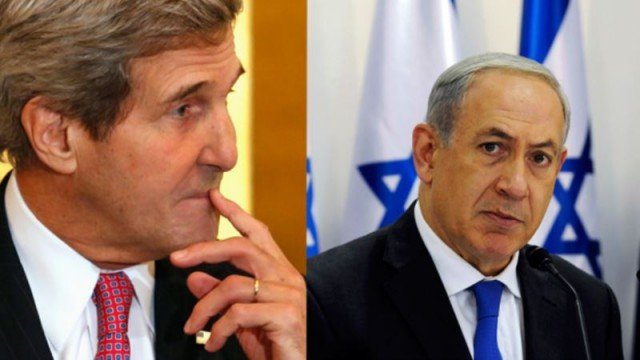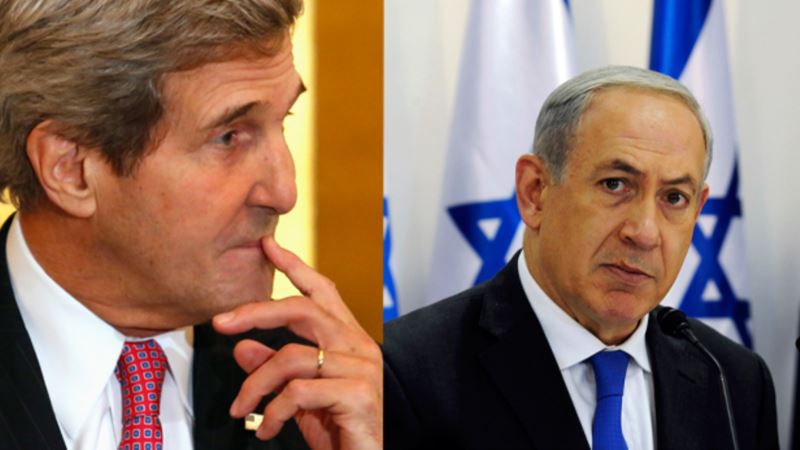The new Iran nuclear deal has been called a “historic mistake”by Israel and some Republicans in US Congress.
“What was achieved last night in Geneva is not a historic agreement. It was a historic mistake,” Israel’s PM Benjamin Netanyahu told a cabinet meeting Sunday morning.
“Today the world become a much more dangerous place, because the most dangerous regime in the world took a significant step towards getting the most dangerous weapon in the world.”
The agreement between Iran and the US, France, Germany, Britain, China and Russia aims to halt the progress of the Iranian nuclear program and rolls back key parts of it.
Earlier, Israel’s Deputy Defense Minister Danny Danon called the agreement “extremely dangerous for the free world.”
“It goes without saying that all options remain on the table and that Israel has the capability – and the responsibility – to defend itself using any means necessary,” Danny Danon said in a statement.
The West and Israel fear that Iran has been seeking to develop a nuclear weapons capability. Tehran denies this, saying its nuclear program is a peaceful energy project.
The White House has tried to reassure Israel that its fear that a deal would leave it vulnerable was unfounded. Late Saturday, President Barack Obama admitted huge challenges remain and said Iran’s promises will be put to the test over the next six months.
“As we go forward, the resolve of the United States will remain firm, as will our commitment to our friends and allies – particularly Israel and our Gulf partners, who have good reason to be skeptical about Iran’s intentions,” the president said.

Emphasizing the US commitment to Israel as well as his personal relationship with Benjamin Netanyahu, John Kerry said on Sunday that the two allies continue to share the same strategy and the US will not tolerate a nuclear Iran threatening Israel.
“There is no difference whatsoever between the United States and Israel about what the end goal is,” John Kerry said.
Earlier in the news conference, John Kerry said the agreement could not have been reached without the Iranians’ decision to come to the negotiating table. He said the next phase of talks, while even more difficult will also be more important
“If this first step leads to what is our ultimate goal – which is a comprehensive agreement – that will make the world safer,” he said.
An agreement with Iran will likely also affect US relations with Saudi Arabia, a Sunni nation, which is threatened by signs of improved US relations with Shiite Iran.
The UAE officially has welcomed the deal but at least one senior Gulf diplomat was much more critical and expressed skepticism over the deal.
The deal stipulates that Iran will commit to halt uranium enrichment above 5% and also to neutralize its stockpile of near-20% uranium. The Islamic Republic has also committed to halt progress on its enrichment capacity. Iran will also halt work at its plutonium reactor and provide access to nuclear inspectors.
In exchange, the US and its allies have agreed to offer Iran “modest relief” from economic sanctions and access to a portion of the revenue that the country has been denied through these sanctions. No new sanctions will be imposed.
The Obama administration also faces skeptics in Congress. Reaction poured in late Saturday and early Sunday and appeared to be divided along party lines.
Rep. Ed Royce, R-California, chairman of the House Foreign Affairs Committee, warned that the deal does not meet the standards necessary to protect the US and its allies.
“Instead of rolling back Iran’s program, Tehran would be able to keep the key elements of its nuclear weapons-making capability. Yet we are the ones doing the dismantling – relieving Iran of the sanctions pressure built up over years,” Ed Royce said in a statement.
House Majority Leader Eric Cantor, R-Virginia, echoed those concerns, saying in a statement he found it “troubling” that the agreement “still permits the Iranians to continue enriching.”
“Iran’s long history of noncompliance with the U.N. Security Council is well known, as is its use of secret facilities to pursue its nuclear program,” Eric Cantor added.
[youtube 5rut0XClXE4 650]
